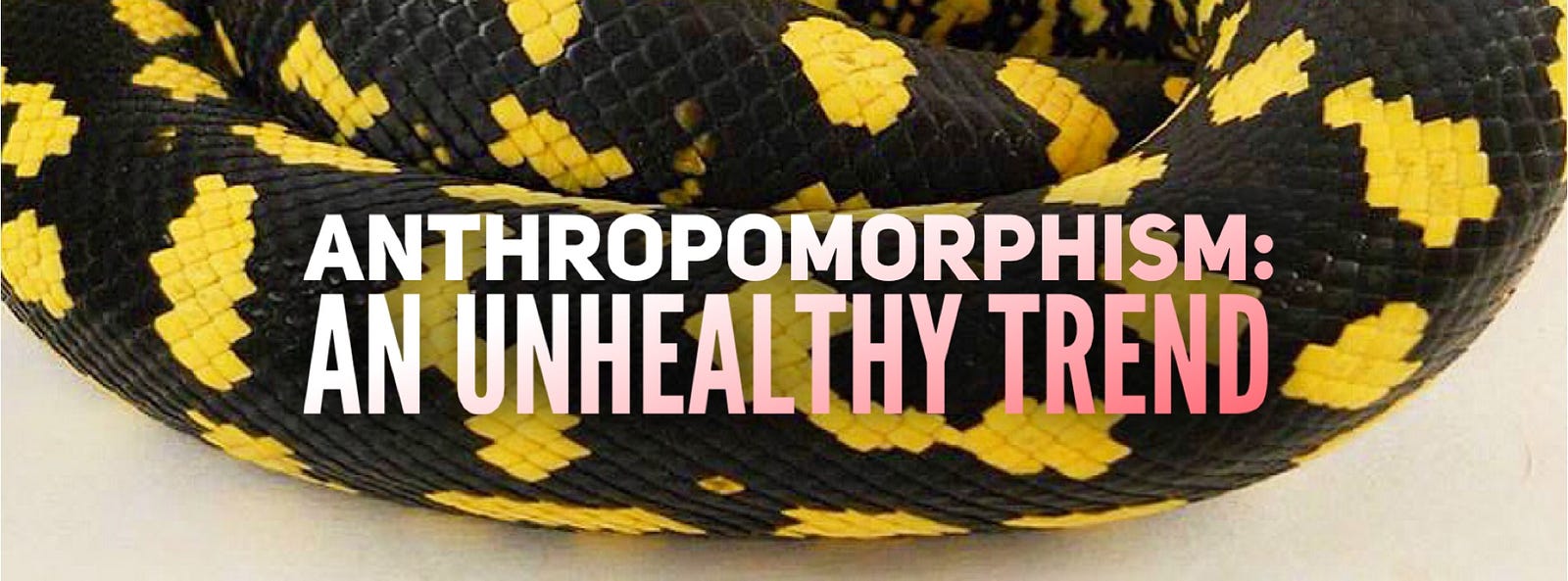It is considered to be an innate tendency of human psychology. Something that's extremely common, especially in [animal care]. It's something I've seen for many years at varying degrees, and always seems to annoy experienced keepers. The reality is there are a lot of negative unhealthy actions in the care of thes animals that stem from this. I don't want this blog to be perceived as negative by the many folks who are guilty of it... but I do want you to have awareness of some of these things and realize the negative impacts it can have on your animals health (physical and psychological even).
Read the full article here.

I feel like this post by Mr. Borden is both complimentary and contradictory to the post by Clifford Warwick that I shared last month, detailing the dangers of what he called "Folklore Husbandry."
Yes, it is important to recognize our animals for what they are. The things that they like, want, and need are not necessarily what we like, want, or need, and we need to respect that when formulating their care. A chameleon does not want to live with a half-dozen other chameleon "friends" or cuddle daily with its keeper - that would be the most stressful hell imaginable for it.
However, I also think there is a risk of becoming too robotic, too rigid in our thinking about the animal. There is plenty of room for empathy and compassion in caring for our charges, without infantilzing them or humanizing them.
The best keepers I've ever known were the ones who were skilled at getting in the heads of their animals and really figuring out what they wanted - not the ones who constantly tried to impose upon the animal what they themselves wanted.
No comments:
Post a Comment